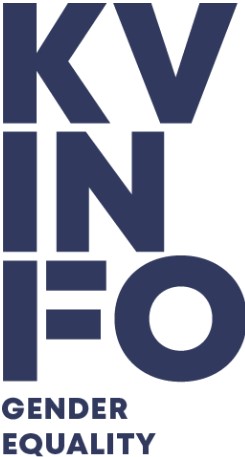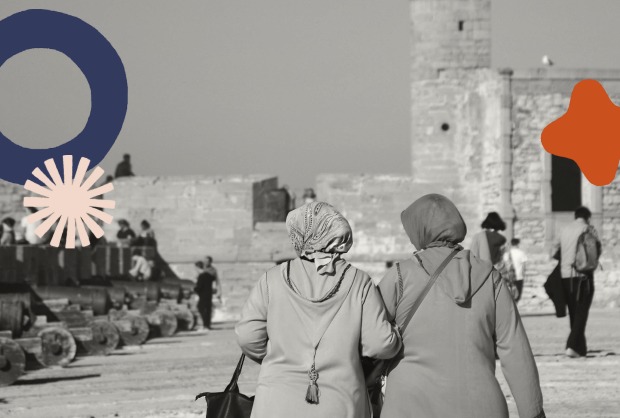Barely a month after 18 million Moroccans went to their local polling stations to, cast their vote and got ink on their thumbs, King Mohammed VI has appointed a cabinet that is not only new in itself. It is also composed of many more different parties compared to previous cabinets. In addition, it has a better gender balance in ministerial positions than ever before.
Out of government are the moderate Islamists of the Justice and Development Party (PJD), which has been in power since 2011. A coalition of the Independence Party, the Modernity and Authenticity Party and the liberalists of the Independent National Coalition Party is now representing Tunisian voters in government.
KVINFO spoke to our Moroccan partner in the organisation Federation of Leagues for Women’s Rights (FLDF) about the election results.
LIST OF THE SEVEN FEMALE CABINET MINISTERS
- Minister of Energy Transition and Sustainable Development: Leïla Benali (RNI)
- Minister of the Economy and Finance: Nadia Fettah Alaoui (RNI)
- Minister of Tourism, Crafts and a Social and Solidaric Economy: Fatima Zahra Ammor (RNI)
- Minister of Women, Family and Social Inclusion: Aouatif Hayar (PI)
- Minister of Housing and Urban Policy: Fatima Ezzahra El Mansouri (PAM)
- Minister of Health: Nabila Rmeili (RNI)
- Minister Delegate to the Head of Government in charge of Digital Transition and Administrative Reform: Ghita Mezzour (PI)
RNI: National Rally of Independents
PAM: Authenticity and Modernity Party
PI: Independence Party
BETTER GENDER BALANCE IN GOVERNMENT
The three parties in the new government will lead the country for the next five years, and for the first time in Morocco’s history, seven female cabinet ministers are part of the cabinet consisting of 24 ministers in total. The number of female cabinet ministers has increased by almost 43%, from four to seven female ministers.
“We congratulate the new female cabinet ministers and all women in Morocco on their appointments. Overall, we are satisfied with the governmental representation of women and hope that it will lead to a string of effective policies and mechanisms for gender equality and equity,” said Latifa Bouchoua, head of the organisation FLDF(Fédération des Ligues des Droits des Femmes). Since 1993, FLDF has been working to secure the formal and effective equality of Moroccan women with men.
She adds:
“Many women ran for office in this election, which is certainly a positive development. The problem is that support is lacking from both the formal state level and society as a whole. We have yet to see a surge in support and are working to achieve it.”
HEAVYWEIGHT MINISTERIAL POSITIONS FOR WOMEN
Bouchoua points out the importance of continuing to encourage women to get involved in politics. She sees the seven new female cabinet ministers as a signal that women naturally have an important role to play in politics:
“We are witnessing very important representation. And so are the heavy ministerial portfolios.”
Several of the seven female cabinet ministers hold important and senior positions in government.
One of them is Nadia Fettaf Alaoui who will head the Ministry of Finance. Alaoui is a well-known businesswoman from the Moroccan financial sector.
Another is Nabila Rmeili, a medical doctor and women’s rights activist. She will lead the Ministry of Health, which, in the midst of the COVID-19 pandemic, has shown an urgent need for change in the Moroccan healthcare system. Rmeili has also been elected mayor of Casablanca, Morocco’s economic capital.
The central energy sector will be led by Leila Benali in the newly created Ministry of Energy Transition and Sustainable Development. Benali comes from a position as Chief Economist at the International Energy Forum (IEF). Energy transition and sustainable development is a top policy priority for Morocco.
FLDF President Latifa Bouchoua welcomes the areas occupied by the female ministers, but points out that gender equality work efforts will continue with the same vigor as before the elections.
“We strive and work for gender equality, whether in the political arena or any other place in society. Change takes time. We fight for women’s right to be at the negotiating table. But also for basic rights. On an equal footing with men. However, we are not there yet,” she says.
PROGRESS WITH RESERVATIONS
Senior Programme Advisor in KVINFO’s international team, Connie Carøe Christiansen, has been closely following the election and finds the development in the election of women interesting.
“I think it is interesting that ministerial positions are undergoing change. This is also very much in line with the greater degree of goodwill towards gender equality found in the Moroccan middle and upper classes, from which the new ministers are also picked,” says Connie Carøe Christiansen.
However, she also notes that developments in parliament have not kept pace.
“The number of women in parliament has only increased from 21.1 percent to 22.5 percent. Unlike the appointment of cabinet ministers, the change we see in parliamentary terms is more about which parties are elected than how many women are elected to serve in parliament,” she continues:
“Some women’s rights organisations will interpret the result positively in the hope that a change of government with new parties may mean that some of the obstacles that have been holding back the work on gender equality can be pushed back a little.”
“WE ARE STILL WAITING”
The same cautious and wait-and-see position can be found on theFacebook page ofthe FLDF organisation, where its spokesperson, Samira Muheya, writes as follows:
“Especially considering the Corona pandemic and its consequences, the area of health, among others, is an important ministry to occupy. We have landed some important and heavy ministries, not only traditional ministries, such as the Ministry of Family and Solidarity. But we are still waiting.”
The organisation’s president, Latifa Bouchoua, is eager to see the government’s political agenda.
“We hope it will prioritise gender equality and promote women’s rights and eradicate discriminatory legislation and culture,” says Bouchoua.
The World Economic Forum’s 2020 Global Gender Gap Index ranked Morocco 143 out of 153, despite making progress on gender equality.
CONCRETE REQUIREMENTS FOR THE NEW GOVERNMENT
Latifa Bouchoua and FLDF used the Moroccan Women’s Day on 10 October as an opportunity to present a series of very specific demands to the new government.
Among other things, they point to the country’s widespread problem of violence against women and call on the government to promote prevention, protection and compensation and to ensure that a budget is allocated for this area.
Similarly, FLDF, in line with organisations in other North African countries, is calling on the government to amend the inheritance law so that women and men inherit on an equal footing.
A recent revision of electoral laws meant that for the first time voters in Morocco voted in both parliamentary and local elections on the same day. This was done in an attempt to increase voter turnout. More than half of the eligible voters participated, according to the Ministry of the Interior. This represents an increase from 43% in 2016.
Female candidates in local and regional elections have increased from 12% in the 2015 elections to 27% in this year’s elections. However, the proportion of districts headed by women remains at just one percent.
Update of 15 October 2021 at 09:36 AM: After the publication of this article, the Minister of Health, Rmeili, decided to resign,reportedly to focus on his mayorship in Casablanca. Instead, former Minister of Health, Khalid Ait Taleb, has been reappointed. As a result, the government now has six female cabinet ministers.


